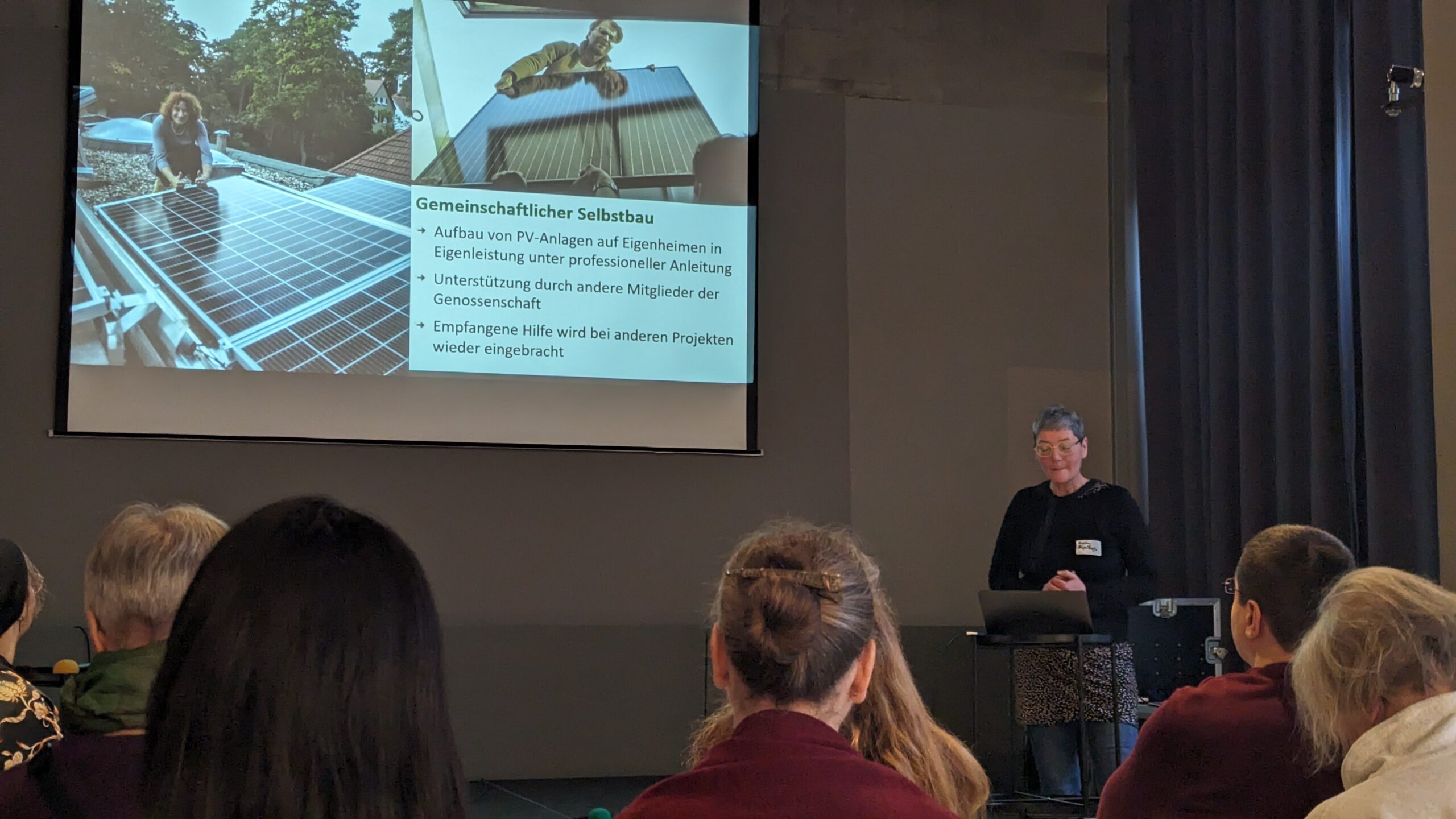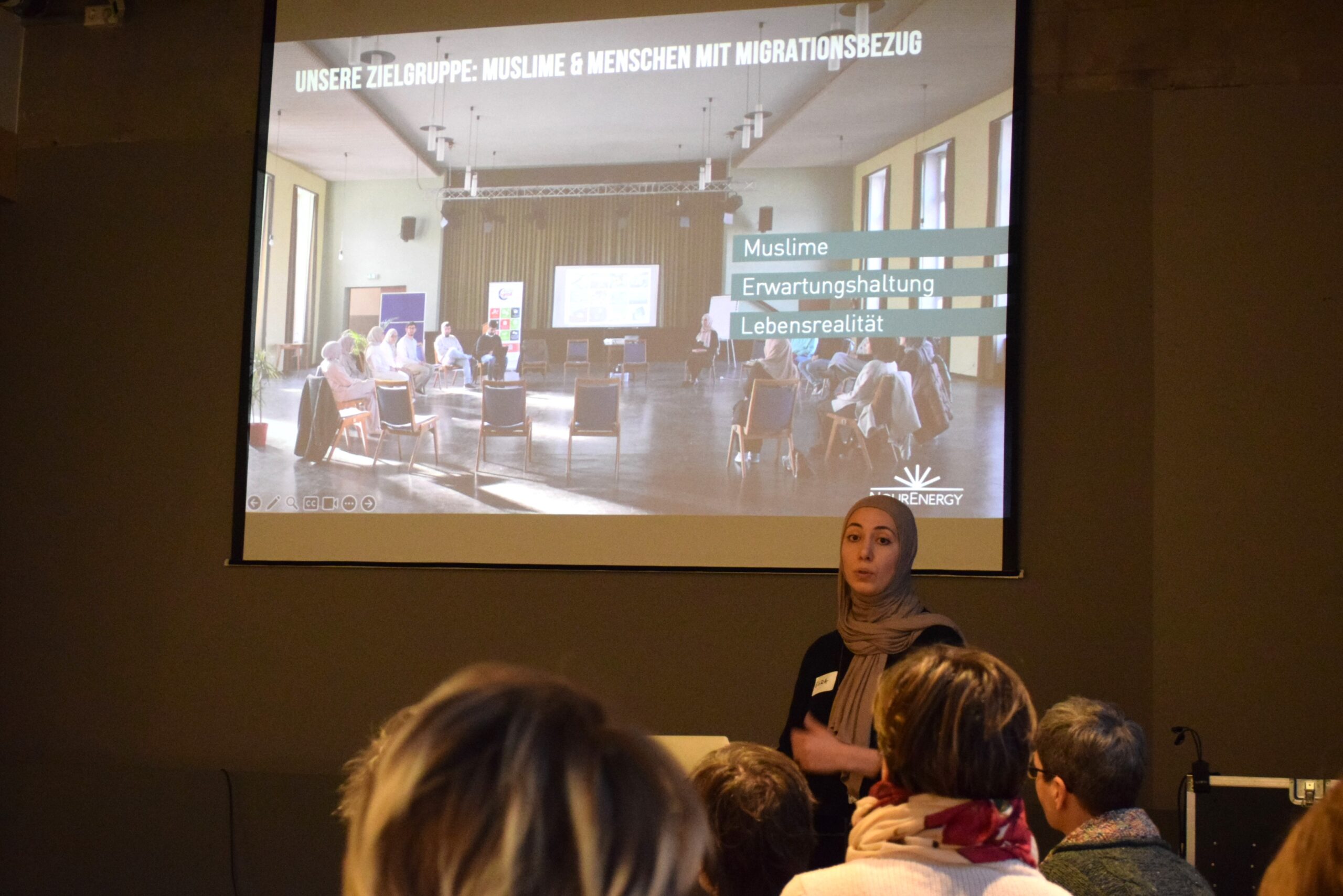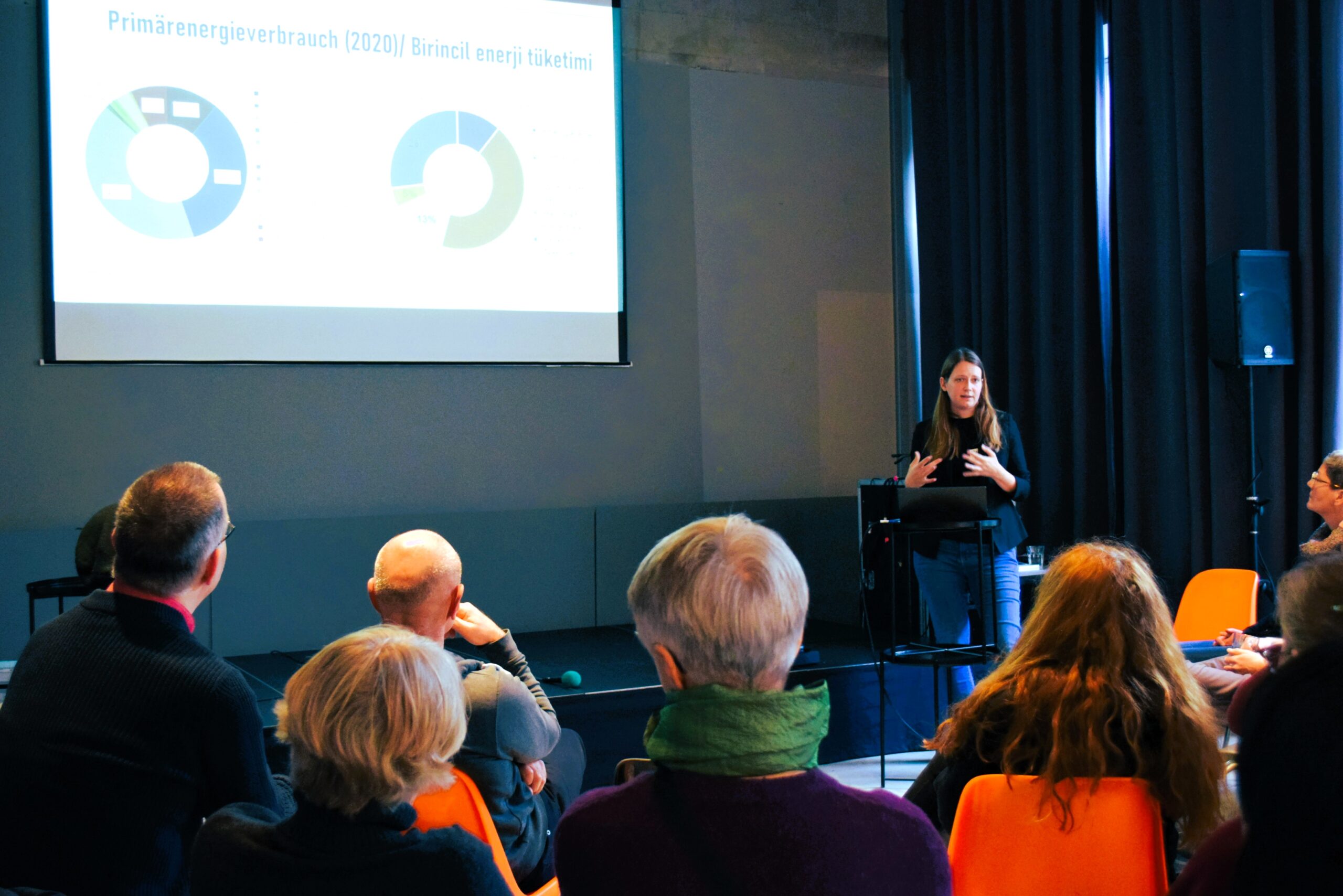While there are many opportunities to participate in the energy system, there is a clear lack of diverse and widespread citizen engagement. The current number of citizens involved in the energy transition is not known, but several studies have shown that women, migrants and low-income households are particularly under-represented as energy prosumers or in energy cooperatives and communities. There is therefore a large untapped potential for more citizen-led energy projects and energy justice.
In the Berlin Citizen Action Lab, we have worked closely with Berlin’s largest energy cooperative (BürgerEnergie Berlin) and several NGOs to develop specific training for facilitators to engage diverse stakeholders on sustainable energy issues.
The aim of the training was to equip facilitators with knowledge and tools to engage more citizens in the local energy system. While some organisations, such as energy cooperatives, may be aware of the lack of diversity in their membership, they have few tools to address this issue. As a first step, PIK initiated a cooperation between BürgerEnergie Berlin, LesLeFam, Nour Energy, Yesil Cember and GenderCC to integrate their expertise and build on their networks of the specific target groups. Two of these NGOs work closely together with women and gender queer people, while the other two target Turkish- and Arabic-speaking citizens to encourage a sustainable lifestyle. In a co-creative design process, we developed a training specifically for stakeholders in gatekeeper positions, e.g. in administration, family centres, schools and more.
The aim of the training was twofold:


 Facilitator training for engaging diverse stakeholders on sustainable energy. Photos by Héctor Rodríguez-Chávez
Facilitator training for engaging diverse stakeholders on sustainable energy. Photos by Héctor Rodríguez-Chávez
Author: Julia Epp (PIK – Potsdam Institute for Climate Impact Research)